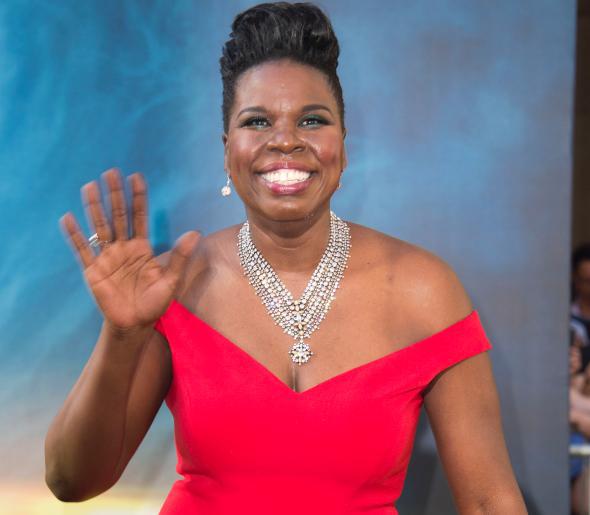Leslie Jones, one of the stars of the lauded—and frustratingly controversial—new Ghostbusters movie, announced early Tuesday morning that she was leaving Twitter “with tears and a very sad heart” because of the racist and sexist abuse she endured on the platform for much of Monday. She described the experience as her own “personal hell.”
The torrent of abuse followed the movie’s premiere last weekend. The all-female lead cast of Ghostbusters has long been maligned by some corners of the internet—those populated by stunted men who say the remake will ruin their childhoods and that women aren’t funny—but Jones received the worst of the vitriol. The SNL comedian and actor was flooded with tweets likening her to the recently killed gorilla Harambe and calling her racial slurs. Many tweets called her ugly. Another, she wrote, said she was the source of AIDS.
The prolonged bile Jones faced on Twitter was, as she put it, “evil.”
Jones also implored Twitter to crack down on the hate, posting, “Twitter I understand you got free speech I get it. But there has to be some guidelines when you let spread like that.”
Hours later, when a fake account impersonating her own was created and started posting homophobic slurs, Jones’ pleas to Twitter escalated. “This was not me!!” she wrote. “OK Twitter I’m done!! If y’all can let this shit happen I don’t want to be here. I did not post this.”
In a statement to BuzzFeed, a Twitter representative said:
This type of abusive behavior is not permitted on Twitter, and we’ve taken action on many of the accounts reported to us by both Leslie and others. We rely on people to report this type of behavior to us but we are continuing to invest heavily in improving our tools and enforcement systems to prevent this kind of abuse. We realize we still have a lot of work in front of us before Twitter is where it should be on how we handle these issues.
Twitter’s guidelines state: “You may not promote violence against or directly attack or threaten other people on the basis of race, ethnicity, national origin, sexual orientation, gender, gender identity, religious affiliation, age, disability, or disease.”
After retweeting and reporting disgusting tweets, Jones wrote in a series of tweets:
You have to hate yourself to put out that type of hate. I mean on my worst day I can’t think of this type of hate to put out. I don’t know how to feel. I’m numb. Actually numb. I see the words and pics and videos. Videos y’all. Meaning people took time to sprew hate. I’m more human and real than you fucking think. I work my ass off. I’m not different than any of you who has a dream to do what they love. I’ve never claim to be better or special. I just try to do my job as best as I can. Isn’t that any of us yall. So Yea this hurts me!
In an era where “Don’t feed the trolls!” has become the go-to advice on how to deal with internet abuse, Jones rejected the idea that she should simply ignore it, writing: “And for all the ‘don’t stoop to their level people’ it’s way past that. So please have a seat. Don’t tell me how to react.”
A hashtag, #LoveForLeslieJ, gathered steam in response to the abuse, and many people cottoned on to the hashtag to tell Jones to “stay strong” and encourage her to come back to Twitter. These messages are well-intentioned, but if Jones needs to step away from Twitter and recuperate from the racist abuse she received simply for doing her job—instead of trying to parry every single blow with a block or a witty comeback—her fans will understand.
